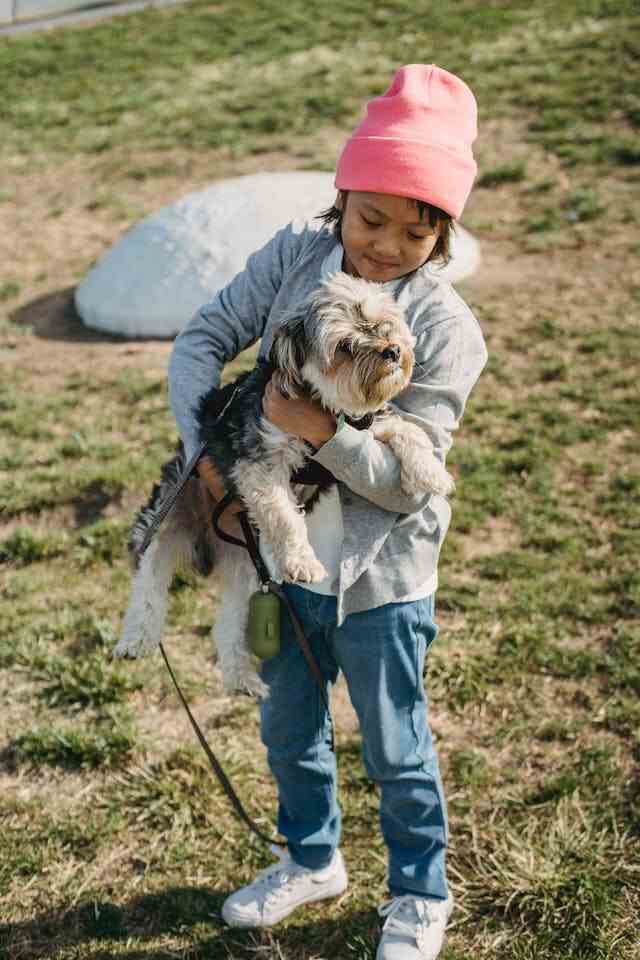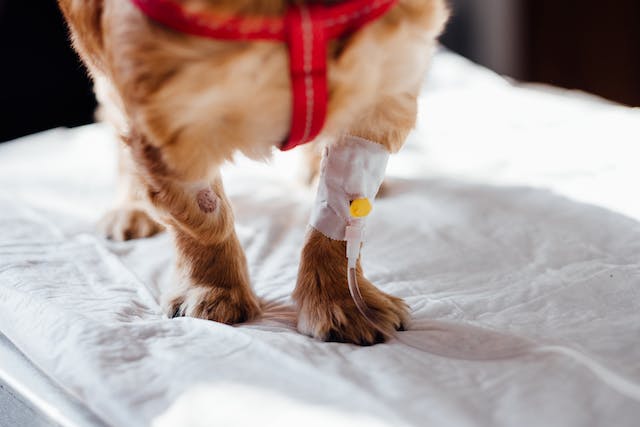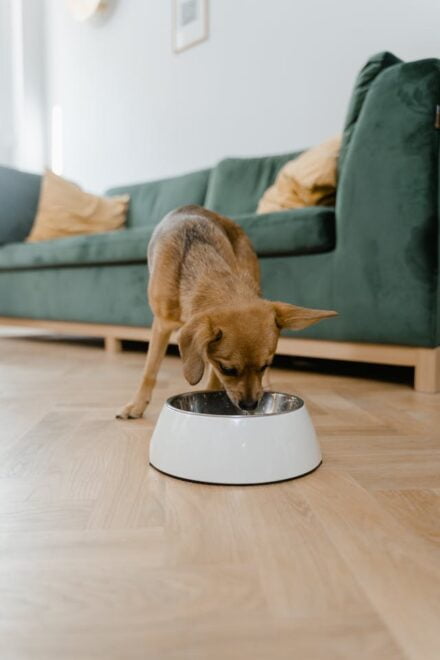
In the complex organization of dog behavior, the strange and sometimes confusing sounds that dogs cry after eating can be likened to a mysterious melody. A wagging tail or soulful eyes in our canine companions often brings joy, but understanding the motivations behind postprandial whining takes a look at the complexities of pet behavior and potential health-related consequences. We need to dig deeper into the symphony. This detailed study aims to elucidate the complex nature of this behavior and provide a symphony of insight into the various aspects that contribute to dogs exhibiting stress vocalizations after eating.
Table of Contents
why does my dog cry after eating?
Understanding Dog Behavior:

Dog behavior is a symphony of nuances, a complex construct shaped by genetics, environmental influences, and learned responses. It is important to understand the intricacies of dog behavior from a professional perspective before the health-related aspects come to a head.
Expressions of contentment:
In the harmonious realm of canine behavior, expressions of contentment are similar to melodic celebrations. From a professional point of view, crying after a meal can be a loud expression of your dog’s satisfaction and happiness with the gastronomic experience. This behavior can be likened to a dog’s aria, a symphonic expression of the joy of cooking.
Attention-seeking behavior:
Adjusting human-dog communication Dogs, who are smart learners, are capable of attention-seeking behavior. Postprandial whining may be a strategic note in this symphony, and may be a learned behavior in which dogs adjust their vocalizations to elicit increased human interaction, treats, or other positive reinforcement.
Fear or Stress:
In the complex structure of dog emotions, the minor key of fear or stress can cause dissonance. In this context, wailing acts as a heart-wrenching sound, a musical expression of emotional discomfort. Expert observation and analysis are essential to deciphering the subtle interplay of stressors in a dog’s psyche.
Exploring Potential Health Problems:

While the Behavioral Overture provides a melodic introduction, a comprehensive examination of potential health problems takes you deeper into the corridors of veterinary knowledge. Orchestrate a resounding diagnostic symphony.
Gastrointestinal Disorders:
From a veterinary point of view, gastrointestinal problems represent an important dynamic in the dog’s health. Dogs may experience indigestion, bloating, and constipation. Discordant discomfort after eating. Persistent crying becomes a musical motif and prompts the veterinarian to perform a thorough examination, including diagnostic tests to harmonize the digestive system.
Food Allergies or Sensitivities:

Nutrition is an important element of the Canine Symphony, can cause variations in the melody. Professional veterinarians often encounter cases in which dogs exhibit unpleasant vocalizations due to food allergies or sensitivities. A systematic approach similar to music composition involves nutritional analysis and elimination experiments to identify potential allergens.
Dental Issues:
An important step in the canine health symphony, dental health often goes unnoticed. Dental problems such as periodontal disease and toothache can cause discomfort when eating. A comprehensive oral exam, similar to a dental sonata, is essential to rule out dental problems that may cause discomfort after meals.
Pancreatitis:
Inflammation of the pancreas, the culmination of a dog’s health condition, can be caused by poor diet. Because pancreatitis is associated with unpleasant abdominal pain, a professional conductor must perform a thorough examination, including blood tests and imaging tests, to diagnose and treat this condition.
Age-related behavioral changes:

As dogs grow older, a slow, pensive adagio enters the symphony of life. As we age, we develop conditions such as arthritis and joint pain, which can make us feel uncomfortable during and after meals. Age-related issues may require a comprehensive evaluation, such as an orthopedic examination, and practice of symphony meditation.
When to Consult a Veterinarian:
How to Perform a Canine Health Symphony Occasional whining is part of normal dog behavior, but when faced with persistent or violent vocalizations, professional It becomes a command to ask for guidance at home.
Behavioral Counseling:
Conducting behavioral counseling is similar to adjusting professional understanding. To understand postprandial stress expression in dogs, professional trainers and behaviorists analyze their environment, daily routine, and interactions through systematic analysis.
Veterinary examinations are a vital diagnostic tool in the canine health symphony. What is the significance of professional veterinary examination? As the conductor of the patient, the veterinarian performs a systematic approach that involves physical examinations, diagnostic tests, and imaging to identify the cause of distress sounds.
Conclusion:
Promoting harmony in the human-canine companionship Understanding the complex symphony of dogs crying after meals is important in promoting harmony in the human-canine companionship is critical to fostering relationships. Responsible pet ownership is about more than just meeting basic needs. This includes a commitment to understanding and addressing your furry companion’s subtle behaviors and health concerns. Expert helps pet owners navigate the complexities of dealing with dogs by recognizing her dual perspectives: behavior and health. In this symphony of care, a collaborative approach ensures the overall health of our beloved canine friends and affirms the deep and lasting bond that exists between humans and their loyal, tail-wagging companions.
why does my dog cry after eating?
Why does my dog cry after eating?
Some dogs may cry after eating due to gastrointestinal discomfort. This could be caused by a variety of factors such as overeating, indigestion, or the consumption of something that doesn’t agree with them. If your dog consistently cries after meals, it’s advisable to consult with a veterinarian to rule out any underlying health issues.
Is it normal for my dog to cry after eating?
Occasional whining or crying after eating might be normal if your dog is excited, especially if they are puppies. However, persistent or intense crying after meals could indicate a problem. It’s crucial to observe your dog’s behavior, monitor their diet, and seek professional advice if the crying persists.
Could my dog be crying due to food allergies?
Yes, crying after eating could be a sign of food allergies or sensitivities. Some dogs may develop allergies to certain ingredients in their food, leading to discomfort and crying. If you suspect food allergies, consider changing your dog’s diet to one with novel protein sources or consulting a vet for allergy testing and guidance on an appropriate diet for your dog.

One Reply to “why does my dog cry after eating?”